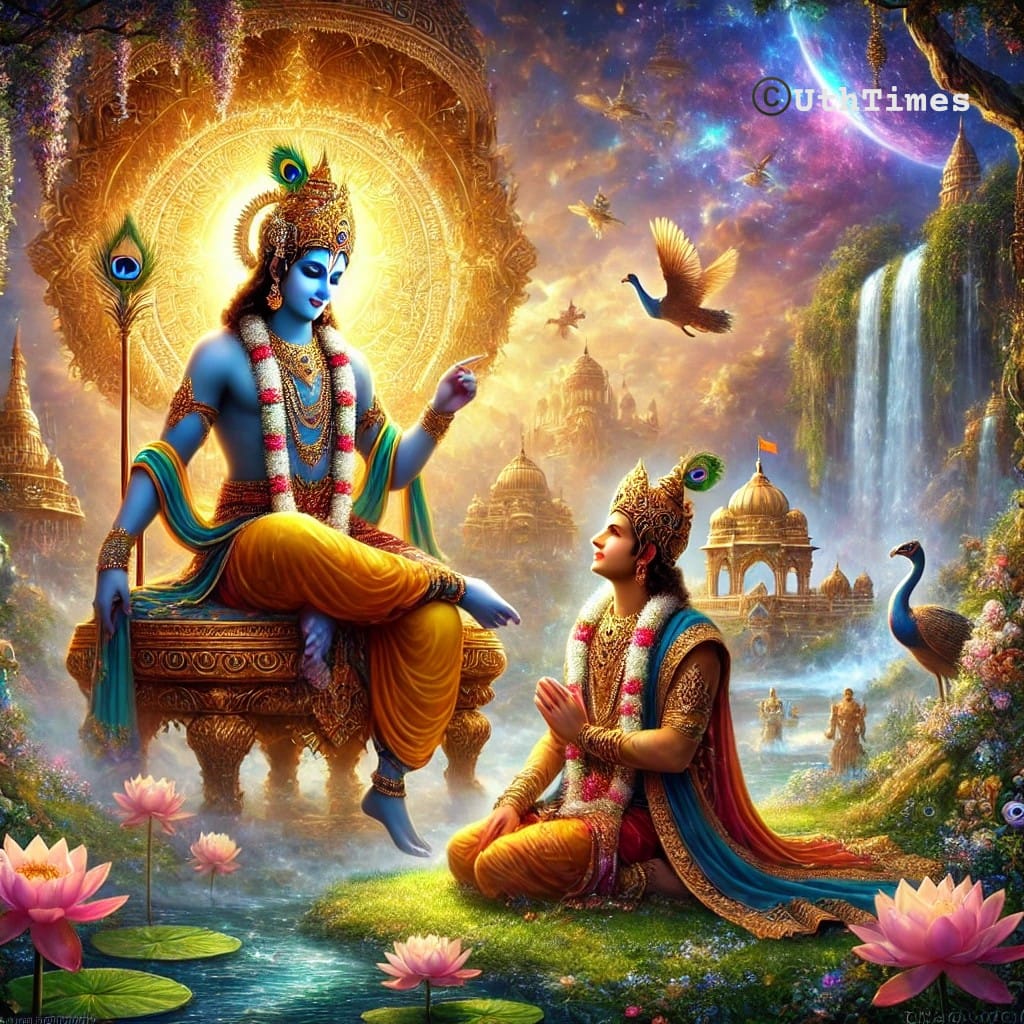The Anugita, found in the Ashvamedha Parva of the Mahabharata, is the final recorded conversation between Bhagwan Krishna and Arjuna.
It takes place after the Kurukshetra war, during a period of peace. Arjuna, reflecting on the profound teachings of the Bhagavad Gita, expresses his inability to fully recall them and requests Krishna to repeat the divine discourse.
Krishna, however, explains that the Gita was spoken in a divine state of consciousness, which cannot be recreated in ordinary circumstances. Instead, he shares the Anugita, a simplified reiteration of spiritual wisdom.

The Anugita emphasizes the same core principles of self-realization, detachment, and duty. Krishna reminds Arjuna of the importance of controlling the mind and senses, practicing meditation, and pursuing self-discipline to achieve liberation.
He explains the transient nature of life and urges Arjuna to focus on the eternal soul rather than the temporary material world.
The discourse also highlights the value of performing one’s dharma selflessly, without attachment to results, to maintain harmony in life.
The Anugita serves as a reflective guide for Arjuna and humanity, summarizing the timeless truths of spirituality. It reinforces the teachings of the Bhagavad Gita, focusing on practical paths to inner peace and liberation.
